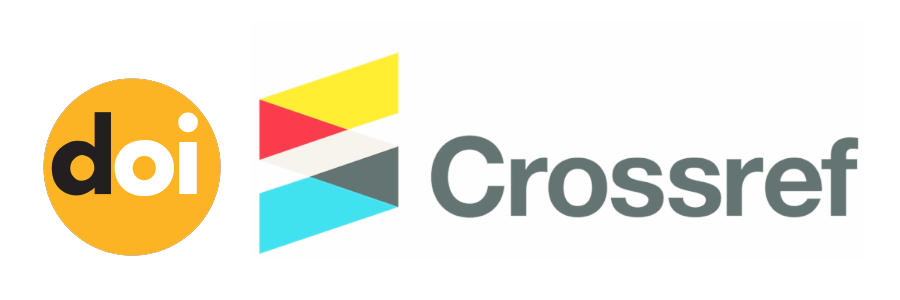The Efficacy of Trauma Focused Cognitive Behavior Therapy on Treatment of PostTraumatic Stress Disorder among Youth Traumatized by Domestic Violence
DOI:
https://doi.org/10.55677/IJCSMR/V3I10-03/2023Keywords:
Adolescents, Domestic violence, TFCBT, PTSD.Abstract
Trauma Focused Cognitive Behavior Therapy (TF-CBT) is an evidence- based therapy that was specifically designed for the treatment of post-traumatic stress disorder (PTSD) among victims of sexual abuse. Due to its efficacy and ease of application, researchers have continued to assess its effectiveness in the treatment of PTSD resulting from other varied traumatic experiences.
Objective: This study sought to confirm the efficacy of TF-CBT in reducing PTSD symptoms among adolescents who had undergone various forms of domestic violence. The participants were drawn from two selected mixed sex public day secondary schools in Kajiado County, Kenya.
Method: Purposive sampling was employed to select 93 adolescents (13-18 years) into the study, based on a self-report social demographic questionnaire where they affirmed to having been exposed to various forms of domestic violence. A Quasi-experimental design was applied where respondents from one of the schools (Kerarapon) were assigned to the control group and the other school (Ngong Township) was the experimental group. PTSD was assessed using the Harvard Trauma Questionnaire at baseline, midline, and, endline. The experimental group received a 12-week TF-CBT intervention, for one hour once a week in group format, but no intervention was given to the control group for the 12 weeks. The midline assessment was done after the 12 weeks and an endline assessment was done 3 months post-treatment in both groups. The Statistical Package for Social Sciences (SPSS) version 29 was used for data analysis, utilizing means, analysis of variance (ANOVA) and the paired samples t-test.
Results: The comparison of means from baseline, midline to endline showed a marked decline in PTSD symptoms in the experimental group (M= 86.44 to 80.63 and 74.20) but in the control group, the PTSD means continued to increase (M= 77.18 to 79.02 to 79.26). The paired samples ttest indicated a statistically significant decline in symptoms from baseline to endline in the experimental group (p=0.033) but in the control group, no statistically significant change in PTSD symptoms was observed from baseline to endline (p=0.986). Based on the effect sizes in the experimental group, the greatest effect of the intervention was at midline to endline phase (d=.454, 95%CI: .102-.799) showing that participants continued to improve posttreatment. Nevertheless, the effect sizes were not large (˂.5) showing that probably, the ongoing domestic violence could have slowed down treatment effects.
Conclusion: TFCBT was found efficacious in the treatment of PTSD among adolescents who had undergone domestic violence, with continued improvement maintained 3-months post treatment. Ongoing domestic violence nonetheless slowed down the treatment effects.
Recommendation: TFCBT can effectively be used for the treatment of PTSD among adolescents undergoing various forms of domestic violence. However, there is need for additional parental education to create awareness on the impacts of domestic violence which would hopefully improve on parenting practices.
References
American Psychiatric Association[APA]. (2013). Diagnostic and statistical manual of mental disorders: DSM-5 (5th ed.). Arlington, VA: Author.
Arzamarski, C., de Steiguer, A., Omari, F., Hellmuth, J., Walters, A.S. (2021). Accessing Child and Adolescent Mental Health Services in Low- and Middle-Income Countries. In: Okpaku, S.O. (eds) Innovations in Global Mental Health. Springer, Cham. https://doi.org/10.1007/978-3-030-57296-9_136
Cabrera, N, Moffitt G, Jairam R, Barton G. (2020). An intensive form of trauma focused cognitive behaviour therapy in an acute adolescent inpatient unit: An uncontrolled open trial. Clinical Child Psychology and Psychiatry. 2020;25(4):790-800.
doi:10.1177/1359104520918641
Castro, M., Alcántara-López, M., Martínez, A., Fernández, V., Sánchez-Meca, J., & López-Soler, C. (2017). Mother's IPV, Child Maltreatment Type and the Presence of PTSD in Children and Adolescents. International journal of environmental research and public health, 14(9), 1077. https://doi.org/10.3390/ ijerph14091077
Davis, R. S., Meiser-Stedman, R., Afzal, N., Devaney, J., Halligan, S. L., Lofthouse, K., Smith, P., Stallard, P., Ye, S., & Hiller, R. M. (2023). Meta-analytic Review: GroupBased Interventions for Treating Posttraumatic Stress Symptoms in Children and Adolescents. Journal of the American Academy of Child and Adolescent Psychiatry, S0890-8567(23)00129-6. Advance online publication.https://doi.org/10.1016/j.jaac.2023.02.013
de Arellano, M. A., Lyman, D. R., Jobe-Shields, L., George, P., Dougherty, R. H., Daniels, A. S.,Ghose, S. S., Huang, L., & Delphin-Rittmon, M. E. (2014). Traumafocused cognitive-behavioral therapy for children and adolescents: assessing the evidence. Psychiatric services (Washington, D.C.), 65(5), 591–602. https://doi.org/10.1176/appi.ps.201300255
de Menil, V. (2014). Undercover in Kenya: The contribution of non-state actors to mental health coverage (Unpublished doctoral dissertation). London School of Economics, London, UK.
Devries, K. M., Knight, L., Child, J. C., Kyegombe, N., Hossain, M., Lees, S., Naker, D. (2017). Witnessing intimate partner violence and child maltreatment in Ugandan children: A cross-sectional survey. BMJ Open, 7(2). https://Doi: 10.1136/bmjopen2016-013583
Dillon, G., Hussain, R., Loxton, D., & Rahman, S. (2016). Mental and physical health and intimate partner violence against women: A review of the literature. International Journal of Family Medicine, https://doi: 10.1155/2013/313909
Dorsey, S., Meza, R. D., Martin, P., Gray, C. L., Triplett, N. S., Soi, C., ... Whetten, K. (2019). Lay counselor perspectives of providing a child-focused mental health intervention for children: Task-shifting in the education and health sectors in Kenya. Frontiers in Psychiatry, 10. doi: 10.3389/fpsyt.2019.00860.
Dorsey, S., Akiba, C. F., Triplett, N. S., Lucid, L., Carroll, H. A., Benjamin, K. S., Itemba, D. K., Wasonga, A. I., Manongi, R., Martin, P., Sun, Z., & Whetten, K. (2022). Consumer perspectives on acceptability of trauma-focused cognitive behavioral therapy in Tanzania and Kenya: A mixed methods study. Implementation Research and Practice, 3.
https://doi.org/10.1177/26334895221109963
Dorsey, S, Lucid L, Martin P, et al. (2020). Effectiveness of Task-Shifted Trauma-Focused Cognitive Behavioral Therapy for Children Who Experienced Parental Death and Posttraumatic Stress in Kenya and Tanzania: A Randomized Clinical Trial. JAMA Psychiatry. 77(5):464–473.doi:10.1001/ jamapsychiatry.4475.
Finkelhor, D., Turner, H. A., Shattuck, A., & Hamby, S. L. (2013). Violence, crime, and abuse exposure in a national sample of children and youth: An update. JAMA Pediatrics,167(7), 614-621.https://Doi:10.1001/jamapediatrics.2013.42
Gama, A. A., R., Pedroa, M. J., Carvalhoc, L., Guerreiroe, A.E., Vera, D., Jorge, Q.A., M. Ines, K. & Sónia, D. (2021). Domestic violence during the Covid-19 pandemic in Portugal. Port J Public Health, 38(1):32–40.
https://DOI: 10.1159/000514341.
Jensen, T.K., Braathu, N., Birkeland, M.S., Ormhaug, S.M.,& Skar, A.S. (2022). Complex PTSD and treatment outcomes in TF-CBT for youth: a naturalistic study. Eur J Psychotraumatol, 13(2), 2114630. doi: 10.1080/20008066.2022.2114630. PMID: 36186162; PMCID: PMC9518270.
Kamau, J.W., Omigbodun, O.O., Bella-Awusah, T.,& Adedokun, B. (2017). Who seeks child and Adolescent mental health care in Kenya? A descriptive clinic profile at a tertiary referral facility. Child Adolesc Psychiatry Ment Health. Mar 14;11:14. doi: 10.1186/s13034-017-0151-x. PMID: 28293286; PMCID: PMC5348803.
Last, B.S., Schriger, S.H., Timon, C.E. et al. (2021). Using behavioral insights to design implementation strategies in public mental health settings: a qualitative study of clinical decision-making. 2, 6(2021). Implement Sci Commun 2021 Feb 1;2(1):11. doi: 10.1186/s43058-021-00115-y. https://doi.org/10.1186/s 43058-020-00105-6.
Li, J., Li, J., Zhang, W., Wang, G., & Qu, Z. (2023). Effectiveness of a school-based, lay counselor-delivered cognitive behavioral therapy for Chinese children with posttraumatic stress symptoms: a randomized controlled trial. Lancet Reg Health West Pac., 33(100699). doi: 10.1016/j.lanwpc.2023.100699. PMID: 36785644; PMCID: PMC9918421.
Mavranezouli, I., Megnin-Viggars, O., Daly, C., Dias, S., Stockton, S., Meiser-Stedman, R., Trickey, D., Pilling, S. (2020). Research Review: Psychological and psychosocial treatments for children and young people with post-traumatic stress disorder: a network meta-analysis. J Child Psychol Psychiatry,61(1),18-29. doi: 10.1111/jcpp.13094. Epub 2019 Jul 17. PMID: 31313834.187.
Memiah, P., Wagner, F. A., Kimathi, R., Anyango, N. I., Kiogora, S., Waruinge, S., Kiruthi, F., Mwavua, S., Kithinji, C., Agache, J. O., Mangwana, W., Merci, N. M., Ayuma, L., Muhula, S., Opanga, Y., Nyambura, M., Ikahu, A., & Otiso, L. (2022).
Voices from the Youth in Kenya Addressing Mental Health Gaps and Recommendations. International Journal of Environmental Research and Public Health, 19(9), 5366.
https://doi.org/10.3390/ijerph19095366
Meyer, A.C., Ndetei, D. (2016). National Academies of Sciences, Engineering, and Medicine. Providing sustainable mental and neurological health care in Ghana and Kenya: workshop summary. National Academies Press. https://www.nationalacademies.org/news/2016/05/genetically-engineered-cropsexperiences-a
Morgan-Mullane, A. (2018). Trauma focused cognitive behavioral therapy with children of incarcerated parents. Clinical Social Work Journal, 46(3), 200-209.
https://doi.org/10.1177/10664807211000083.
Murray, L. K., Skavenski, S., Kane, J. C., Mayeya, J., Dorsey, S., Cohen, J. A., ... Bolton, P. A. (2015). Effectiveness of trauma-focused cognitive behavioral therapy among trauma-affected children in Lusaka, Zambia: A randomized clinical trial. JAMA Pediatrics, 169(8), 761-769.
National Center for injury control and prevention. Division of violence prevention and control.(n.d): http://www.cdc.gov/violenceprevention/intimatepartner violence/riskprotectivefactors.html.
O’Callaghan, P., McMullen, J., Shannon, C., Rafferty, H., & Black, A. (2013). A randomized controlled trial of trauma-focused cognitive behavioral therapy for sexually exploited, war-affected Congolese girls. Journal of the American Academy of Child & Adolescent Psychiatry, 52(4), 359-369.
Okamura, K.H., Skriner, L.C., Becker-Haimes, E.M. et al. (2020). Perceptions of Evidencebased Treatment among Youth and Caregivers Receiving Trauma Focused-Cognitive
Behavioral Therapy. J Child Fam Stud 29, 1712–1722. https://doi.org/10.1007/s10826-020-01708-2
Orindi, B., Maina, B.W. Sheru, W. M., I. Birdthistle, D. J. Carter, S. Floyd, A. Z. (2020). Experiences of violence among adolescent girls and young women in Nairobi’s informal settlements prior to scale-up of the dreams partnership: prevalence, severity and predictors. https://doi.org /10.1371/journal.pone.0231737. https://journals.plos.org/plosone/article?id =10.1371 %2Fj
Papalia, N., Mann, E., & Ogloff, J. R. P. (2021). Child Sexual Abuse and Risk of Revictimization: Impact of Child Demographics, Sexual Abuse Characteristics, and Psychiatric Disorders. Child Maltreatment, 26(1), 74–86.
https://doi.org/10.1177/1077559520932665
Syros, I. (2017). Cognitive behavioral therapy for the treatment of PTSD. European Journal of Psychotraumatology, 8(sup4).
https://doi:10.1080/20008198. 2017.1351219.
United Nations Children’s Fund [UNICEF].(2020). New five-year National Prevention and Response Plan and ‘Spot It, Stop It’ campaign to tackle violence launched.
Downloads
Published
Issue
Section
License
Copyright (c) 2023 International Journal of Clinical Science and Medical Research

This work is licensed under a Creative Commons Attribution 4.0 International License.












